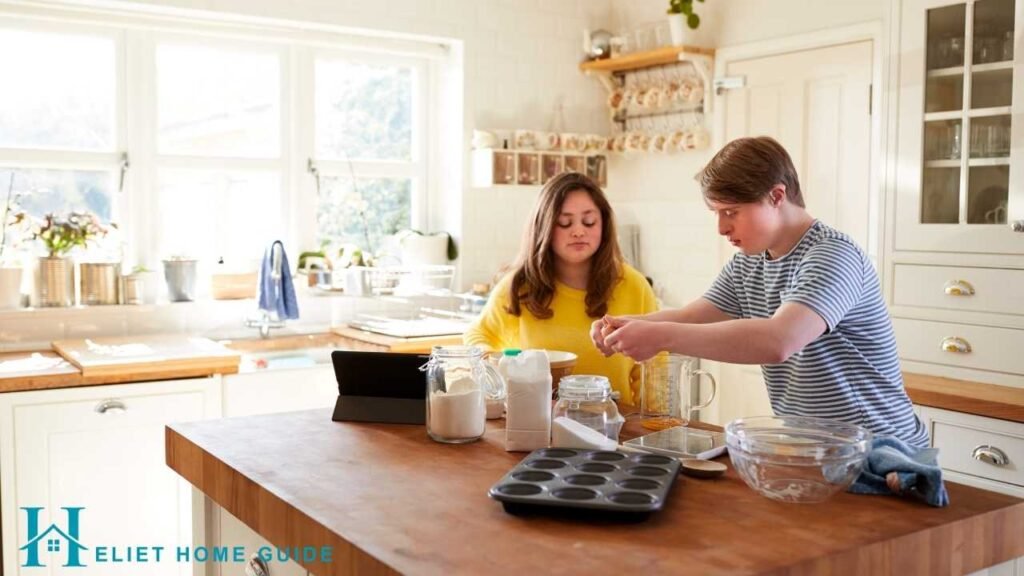Buying a home with zero down is possible, but it comes with risks. While it may seem like a great deal, the cost in the long run can be higher due to additional fees and hidden costs. A special loan program might help, but the interest rates and terms are often associated with extra financial burdens. It’s important to research and understand all conditions before making a decision.
Key Steps to Buying a Home with No Down Payment
- Check with different lenders about their zero-down programs by searching the yellow pages under Banks, Savings and Loans, or Real Estate – Mortgage.
- Visit the loan department of a financial institution or ask for a referral from a local real estate agent. You can also find mortgage options online. It’s also important to choose the right real estate agent to help guide you through the process.
- Contact the county housing department to see if they offer federally or locally backed financing programs with zero-down options.
- Ask your employer if they provide special financing assistance. Jobs like police officer, teacher, or labor union members may qualify for support through professional organizations.
- When seeking a home, talk to owners to see if they’re willing to carry the loan. You may need to offer a higher asking price or pay a higher interest rate to compensate for paying no money down. It’s also helpful to know how to negotiate on a home to get the best deal possible.
- A borrower with a zero down payment has a higher risk of foreclosure, so lenders require good credit and a satisfactory credit history. Always check program specifications before applying.

| Step | Description |
| 1. Check Lenders | Search for zero-down programs from banks, savings and loans institutions, or mortgage lenders. |
| 2. Visit Financial Institutions | Speak with loan officers or get referrals from real estate agents. |
| 3. Contact Housing Departments | Check for federally or locally backed financing programs. |
| 4. Employer Assistance | Some jobs (police, teachers, union members) offer financing support. |
| 5. Seller Financing | Negotiate with owners who may be willing to carry the loan with a higher interest rate. |
“Homeownership is not just about buying property; it’s about securing your future.”
Effective Strategies for Zero-Down Home Buying
When looking into zero-down programs, it’s important to understand that they often come with income limitations. These programs are aimed at helping buyers within certain income levels, so checking eligibility is key. Some options may have stricter rules, but if you qualify, they can be a great way to own a home without a large upfront cost.

Essential Risks to Consider Before Choosing a Zero-Down Loan
Getting a zero-down loan might seem like a great way to buy a home, but you should be aware of the risks. Even if your credit and income are excellent, lenders may charge a higher interest rate to compensate for the additional risk of putting no money down. You will also need to pay for mortgage insurance, which is not the same as mortgage interest and cannot be deducted on your tax return. Before making a decision, evaluate steps to evaluating a neighborhood before buying to ensure long-term value.

| Risk Factor | Explanation |
| Higher Interest Rates | Lenders charge more to compensate for the risk. |
| Mortgage Insurance Costs | Unlike mortgage interest, insurance costs are non-deductible. |
| Long-Term Debt | Higher monthly payments could strain finances. |
| Property Value Fluctuations | If home values drop, you could owe more than the house is worth. |
“Not all that glitters is gold—understand the true cost before committing.”
- Government Programs That Support Zero-Down Homeownership
- Your article briefly mentions county housing departments, but it does not fully explore government-backed loan programs such as USDA loans (for rural homebuyers) or VA loans (for military personnel), which allow for zero-down purchases. Learn more about how to buy a home for zero down and what financing options are available.
- Alternative Financing Methods: Seller Financing & Lease-to-Own
- You mention talking to owners about carrying the loan, but seller financing and lease-to-own agreements could be expanded on as alternative methods to buy a home with little to no down payment.
- Understanding Down Payment Assistance (DPA) Programs
- Some non-profit organizations and state housing agencies offer grants and forgivable loans to help first-time buyers cover down payments.
- Hidden Costs and Financial Risks of Zero-Down Mortgages
- While the article touches on higher interest rates and mortgage insurance, it does not fully explain how these factors affect monthly payments and the total loan cost over time. A cost comparison example could be useful here.
Exploring Government-Backed Loan Options for First-Time Buyers
Many first-time homebuyers qualify for government-backed programs such as USDA loans, which allow zero down for homes in designated rural areas, and VA loans, which provide zero-down financing for eligible veterans and active military members. These loans typically offer competitive interest rates and do not require private mortgage insurance (PMI), making them an attractive option for those who qualify.

“The right financing plan turns dreams into reality.”
Exploring Down Payment Assistance (DPA) Programs
Certain state housing agencies and non-profits provide grants or second loans that help cover down payments and closing costs. These programs often have income limits and require buyers to complete homeownership education courses. Checking with local housing authorities can help buyers find resources that make homeownership more affordable.

Seller Financing and Alternative Purchase Agreements
If traditional lenders are not an option, seller financing or rent-to-own agreements may help you secure a home without a down payment. In a seller financing deal, the seller acts as the lender and sets repayment terms. In a lease-to-own agreement, part of your monthly rent goes toward your future purchase. Both options can help buyers who lack upfront cash but require careful negotiation to ensure fair terms.

“Owning a home isn’t about how much you pay upfront, but how smart you play the game.”
Evaluating the True Cost of Zero-Down Loans
While avoiding a down payment may seem appealing, the overall cost of homeownership can be higher. Zero-down loans typically come with higher monthly payments, mortgage insurance fees, and increased interest rates. Buyers should compare the total loan cost over time to determine if a zero-down option is financially wise in the long run.
| Loan Type | Down Payment | Interest Rate | Monthly Payment | Mortgage Insurance |
| Zero-Down Loan | $0 | Higher | Higher | Required |
| Traditional Loan (20% Down) | $40,000 (on $200K home) | Lower | Lower | Not Required |
“The lowest upfront cost doesn’t always mean the best deal in the long run.”
Final Thoughts: Making Smart Homeownership Decisions
Buying a home with zero down is possible, but it requires careful consideration. From exploring government-backed options to understanding seller financing, you need to weigh all risks and benefits. The key to smart homeownership is not just getting the house, but ensuring it remains a financial asset rather than a burden.
“Homeownership is a journey—choose the right path.”
Frequently Asked Questions
Can I really buy a home with zero down?
Yes, you can buy a home with zero down through government-backed loans, seller financing, or down payment assistance programs, but expect higher interest rates and additional costs.
What are the risks of a zero-down mortgage?
Zero-down mortgages come with higher monthly payments, mortgage insurance costs, and higher interest rates, increasing the long-term financial burden compared to traditional home loans.
What loan programs offer zero-down financing?
USDA loans (for rural buyers) and VA loans (for military members) allow zero-down financing, while some state and local programs provide down payment assistance for qualifying buyers.
Do I need good credit for a zero-down home loan?
Yes, lenders require a strong credit score and a stable financial history to approve zero-down mortgages, as these loans carry higher risk for both the lender and borrower.
Is seller financing a good zero-down option?
Seller financing allows buyers to negotiate directly with the seller, often without a down payment, but terms vary, and interest rates may be higher than traditional loans.
Can I avoid paying mortgage insurance with zero down?
Most zero-down loans require private mortgage insurance (PMI), except for VA loans, which do not have PMI but may include a funding fee instead.
How do down payment assistance programs work?
Down payment assistance programs provide grants, forgivable loans, or low-interest loans to help first-time buyers cover upfront costs, but they often have income and credit score requirements.
Will a zero-down loan cost me more in the long run?
Yes, due to higher interest rates, mortgage insurance, and increased monthly payments, a zero-down loan may cost more over time compared to loans with a down payment.
Can I use a lease-to-own agreement instead of a loan?
Yes, lease-to-own agreements let buyers rent a home with the option to purchase later, applying a portion of rent toward the future down payment.
How can I improve my chances of getting approved for a zero-down loan?
Maintain a high credit score, stable income, and low debt-to-income ratio while researching lenders and government-backed programs that fit your financial situation.
Conclusion
Buying a home with zero down can be an appealing option for those looking to enter homeownership without a large upfront cost, but it’s essential to consider the long-term financial impact. While government-backed loans, down payment assistance programs, and seller financing offer viable paths, they often come with higher interest rates, mortgage insurance, and stricter qualification requirements. Before committing to a zero-down mortgage, carefully assess your financial stability, research available programs, and compare the total cost over time. Homeownership should be a step toward financial security, not a burden—making an informed decision will ensure that your investment remains a smart and sustainable choice.

Rhys Henry is a Luxury Realtor & Senior Partner at Tyron Ash International, specializing in South East London & Kent Division. A dedicated real estate agent, Rhys is passionate about helping clients navigate buying, selling, and investing in luxury properties with expert guidance and industry-leading strategies.

